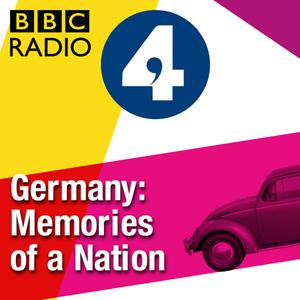
Germany: Memories of a Nation
BBC
Neil MacGregor, director of the British Museum, explores 600 years of Germany's complex and often challenging history using objects, art, landmarks and literature.
- 13 minutes 53 secondsReichstag
Neil MacGregor began his journey through 600 years of German history at the Brandenburg Gate in Berlin, and ends it at the Reichstag, seat of the German Parliament. These two extraordinary buildings, only a few hundred yards apart, carry in their very stones the political history of the country.
Neil talks to architect Norman Foster, who in 1992 won the commission to restore the Reichstag, when Germany's Parliament returned to Berlin in the wake of re-unification.
Producer Paul Kobrak.
7 November 2014, 10:00 am - 14 minutesBarlach's Angel
Neil MacGregor focuses on Ernst Barlach's sculpture Hovering Angel, a unique war memorial, commissioned in 1926 to hang in the cathedral in Güstrow.
Producer Paul Kobrak.
6 November 2014, 10:00 am - 14 minutes 6 secondsThe New German Jews
After concentration camps like Buchenwald and extermination camps like Auschwitz, it seemed that the story of Jews in Germany must come to a full stop at the end of the war. Why would any Jew in 1945, or in 1965 for that matter, see any part of their future in Germany? But remarkably Germany today has the fastest-growing Jewish population in Western Europe.
Neil MacGregor visits a synagogue in Offenbach, near Frankfurt, which was inaugurated in 1956 and has been greatly enlarged in the years since then.
Producer Paul Kobrak.
5 November 2014, 10:00 am - 13 minutes 56 secondsOut of the Rubble
Neil MacGregor talks to a Trümmerfrau, a woman who cleared rubble from the streets of Berlin in 1945, and focuses on a sculpture by Max Lachnit, a portrait of a Trümmerfrau made from hundreds of pieces of rubble.
Neil also examines the role the launch of the Deutsch Mark played in the re-building of Germany.
Producer Paul Kobrak.
4 November 2014, 10:00 am - 13 minutes 54 secondsThe Germans Expelled
Neil MacGregor focuses on a small hand-cart to tell the story of the forced movement of more than 12 million Germans, who fled or were forced out of Central and Eastern Europe after 1945.
For many, the only way of transporting their possessions was a hand-cart, as they walked to parts of Germany they had never seen before.
And Neil also reflects on the 1949 Berlin staging of Brecht's play Mother Courage, examining a model of the production's set. Fiona Shaw, who has played the title role, discusses how the image of Mother Courage pulling her cart, amidst the devastation of war, became one of the most memorable stage pictures of the 20th century.
Producer Paul Kobrak.
3 November 2014, 10:00 am - 14 minutes 6 secondsAt the Buchenwald Gate
Neil MacGregor visits Buchenwald, one of the earliest and largest concentration camps.
Producer Paul Kobrak.
31 October 2014, 10:00 am - 14 minutesPurging the Degenerate
Neil MacGregor examines how the Nazis attacked art they viewed as 'entartet' - degenerate.
He charts how Goebbels, Hitler's propaganda minister, led a process designed to purify all German culture, including books, music, paintings and pottery.
The programme focuses on a vase created by Grete Marks, with an evident debt to Chinese ceramics, and a loose brush-splashed glaze suggestive of modernist painting. Goebbels condemned this vase in his newspaper Der Angriff - The Attack. Grete Marks, who was Jewish and had trained at the Bauhaus, left Germany for England.
Producer Paul Kobrak.
30 October 2014, 10:00 am - 13 minutes 59 secondsMoney in Crisis
Neil MacGregor examines the emergency money - Notgeld - created during World War One and its aftermath. Small denomination coins began to disappear because their metal was worth more than their face value. People hoarded them or melted them down. Paper notes replaced coins, but as cities produced their own money, there was also currency made from porcelain, linen, silk, leather, wood, coal, cotton and playing cards.
He also focuses on the crisis of hyperinflation in the early 1920s. At its peak, prices doubled every three and a half days, and in 1923 a 500 million mark note might buy a loaf of bread.
Producer Paul Kobrak.
29 October 2014, 10:00 am - 14 minutes 1 secondKathe Kollwitz: Suffering Witness
Neil MacGregor focuses on the art of Käthe Kollwitz (1867-1945), who expresses the loss and suffering of war, especially after the death of her younger son Peter at the front in 1914.
Neil MacGregor argues that she is one of the greatest German artists. Like no other artist of the time, Kollwitz gave voice to the overwhelming sense of personal loss felt by ordinary Germans - the loss of a whole generation, the loss of political stability and of individual dignity.
Producer Paul Kobrak.
28 October 2014, 10:00 am - 14 minutes 6 secondsBismarck the Blacksmith
Neil MacGregor charts the career of Otto von Bismarck (1815-98), known as the Iron Chancellor: he argued that the great questions of the day should be decided by 'iron and blood'.
Bismarck was disliked and feared by foreigners, and reviled by liberals at home for his authoritarianism, but among many sections of the German population, he was a hero.
At his death, monuments were erected across the whole country by public subscription, but Bismarck could also be brought into your own home. Small statues of Bismarck came in many guises, but few are more striking than the little bronze and plaster figure belonging to the German Historical Museum in Berlin, showing Bismarck the Blacksmith. Bald-headed, sleeves rolled up, wearing a leather apron and wielding his hammer, the middle-aged Bismarck is at his forge, the trusty village blacksmith.
Producer Paul Kobrak.
27 October 2014, 10:00 am - 14 minutes 2 secondsBauhaus: Cradle of the Modern
Neil MacGregor focuses on the Bauhaus school of art and design, founded in Weimar in 1919. Our cities and houses today, our furniture and typography, are unthinkable without the functional elegance pioneered by the Bauhaus.
Producer Paul Kobrak.
24 October 2014, 9:00 am - More Episodes? Get the App
Your feedback is valuable to us. Should you encounter any bugs, glitches, lack of functionality or other problems, please email us on [email protected] or join Moon.FM Telegram Group where you can talk directly to the dev team who are happy to answer any queries.
 Start the Week
Start the Week
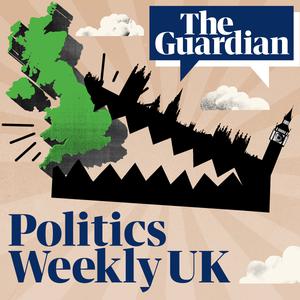 Politics Weekly UK
Politics Weekly UK
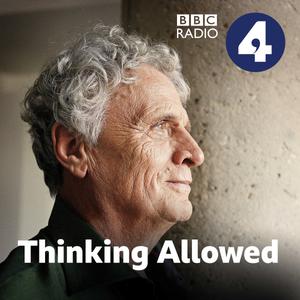 Thinking Allowed
Thinking Allowed
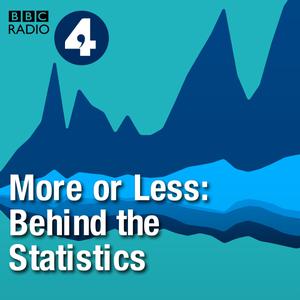 More or Less: Behind the Stats
More or Less: Behind the Stats
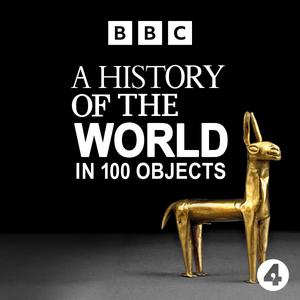 A History of the World in 100 Objects
A History of the World in 100 Objects
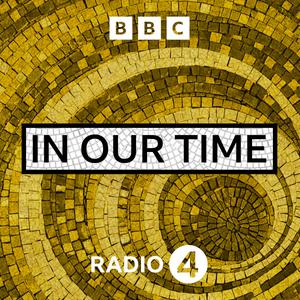 In Our Time
In Our Time